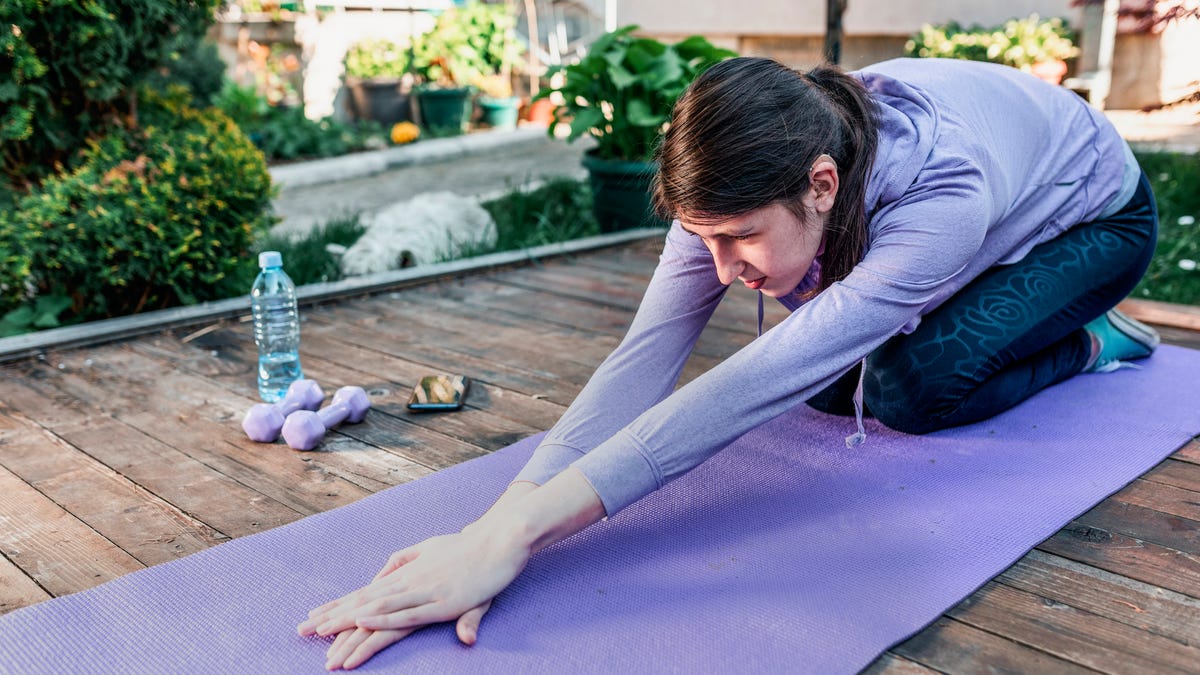 Why You Can Trust CNET
Why You Can Trust CNET How to Work Out With Hearing Aids: 4 Essential Tips
Just because you wear a hearing aid doesn’t mean you have to forgo your favorite workouts. Here’s how to keep them safe while hitting the gym.

Keep your device in good shape--even when you're breaking a sweat.
Hearing aids have become more accessible since they're now available over the counter without a prescription for people with mild or moderate hearing loss. If you're an avid exerciser who wears a hearing aid, then you may have some concerns about ruining your device.
Whether you enjoy running, cycling, hiking, swimming or playing team sports, there are steps you have to take to keep your hearing aid in tip-top shape. In addition to maintaining the upkeep, it's important to choose the right product depending on the activity of your choice. We spoke to a few experts on how you can exercise with a hearing aid without putting the device in danger of damage.
Keep perspiration at bay
Most modern hearing aids have high ingress protection or IP ratings that indicate they're good at keeping sweat and dirt from entering the device. But it's helpful to know ways to protect it even further. If you partake in workouts that make you perspire a lot, then it may be helpful to follow these tips.
"Some recommendations that I have given to patients include wearing a sweatband under the hearing aids to absorb the moisture before it hits the body of the device," said Ruth Reisman, who holds a doctorate in audiology and works at Urban Hearing. She suggests using hearing aid covers like ear gear to prevent moisture build up in the device.
Laura Bedell Garish, who holds a doctorate in audiology and works at the Ohio State University Wexner Medical Center, says that modern day hearing aids can withstand moisture better than we think. "Most hearing aids have an IP68 rating, so any electronic device, including hearing aids, have been tested to endure submersion in 1.5 meters of water for 30 minutes without damage," she explained.
Choose appropriate hearing aids
There aren't fully waterproof hearing aids, so swimming with a hearing aid isn't usually recommended. But if you must, Garish recommends choosing ones that are designed to handle being under water. "There are some hearing aids that have a special seal to allow for the aids to be submerged in water for longer periods of time and are ideal for watersports," she said.
Similarly, to stay on the safe side, some experts advise not using your everyday hearing aids for wet or extra sweaty activities. "Patients can consider wearing a hearable like a Jabra device that is waterproof while doing heavy exercising in lieu of their medical grade hearing aids to avoid damage to the device," Reisman suggested.
Keep them secured
If you're going to be jumping, running or doing any movements that are high impact, you'll want to make sure that your hearing aid is properly fitted for your ears. Remember to check any helmets, sweatbands, hats or other accessories where the hearing aids may get caught as you're taking them off.
"If you worry about losing your hearing aids while working out, you can purchase hearing aid covers with a clip-on cord to secure them to your clothing," advised audiologist Annie Duchen.
Give them some TLC before bed
As part of your bedtime routine, you should make sure you're checking your hearing aids for any damage caused by trapped moisture. A good way to keep your hearing aids dry is by using a desiccant jar or an electronic drying system overnight.
"Some of these drying kits are just moisture beads that become activated or reactivated through heating processes, while others are actually electronic dryers that get plugged into the wall," said Reisman. If you're uncertain on which to buy, speak to your audiologist to find out the best drying kit for your hearing aids.
Remember that all hearing aids have a warranty and it's a good idea to get regular checkups while they're covered.

